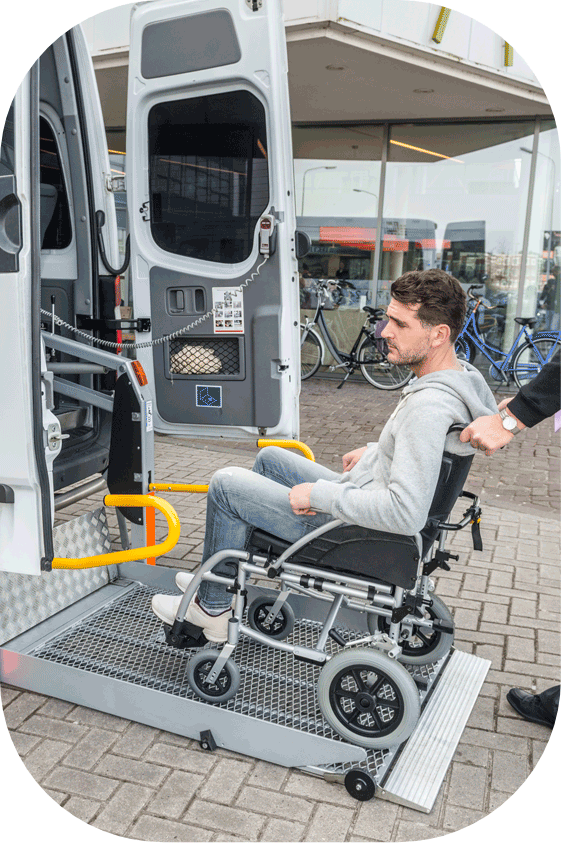Inexpensive and Accessible Medical Transportation Options for each Circumstance
In the world of medical care, the capacity to accessibility clinical solutions is extremely important, yet the obstacle of inexpensive and available transportation can usually prevent people from receiving necessary care. While some may have the means to protect personal transport, several face obstacles that make it difficult to reach medical appointments or facilities. The landscape of medical transportation options is progressing, providing a variety of options tailored to different needs and circumstances. By checking out customized medical transport services, area transportation programs, ride-sharing and taxi services, non-emergency medical transportation, as well as public transportation and paratransit choices, individuals can discover methods that deal with their specific requirements and guarantee they obtain the care they require.
Specialized Medical Transport Solutions
Specialized clinical transportation solutions play a vital role in ensuring secure and reliable transport for individuals requiring specialized treatment during transportation. These services provide to individuals with special medical demands, such as those needing constant surveillance, specialized tools, or medical treatments during transportation. By using specifically equipped automobiles and skilled medical workers, specialized clinical transportation services guarantee that people receive the required treatment while being moved between health care facilities, homes, or various other areas.
One key element of specific medical transportation solutions is the focus on individual comfort and security. Clinical transportation teams are educated to take care of different clinical problems and emergency situations that may emerge during transit, offering a greater degree of care than typical transport alternatives. Additionally, these services often supply door-to-door assistance, lessening the tension and discomfort that individuals might experience throughout transfers.
Area Transport Programs
Having resolved the important role of customized clinical transport solutions in making certain secure and effective transport for people with unique clinical needs, the emphasis now moves to taking a look at Area Transportation Programs - medical transportation. These programs play a crucial duty in giving budget-friendly and obtainable transportation solutions for the basic population, consisting of seniors, individuals with handicaps, and low-income households who might face difficulties in accessing typical transportation alternatives
Neighborhood Transport Programs encompass a series of services such as fixed-route buses, paratransit solutions, volunteer vehicle driver programs, and ridesharing efforts. These programs are typically subsidized by city governments, non-profit organizations, or exclusive wikipedia reference firms to guarantee that individuals have trustworthy transport choices to get to clinical visits, food store, social tasks, and other essential destinations.
Ride-Sharing and Taxi Providers

One of the vital benefits of ride-sharing and taxi services is their access. These services run 24/7, enabling individuals to travel to medical visits, drug stores, or medical facilities any time of the day. Furthermore, ride-sharing and taxi solutions satisfy people with wheelchair challenges by offering wheelchair-accessible vehicles upon demand.
Additionally, ride-sharing and taxi services can be particularly useful for individuals living in locations with restricted public transport alternatives. By linking the space in between home and medical care facilities, these services play an essential duty in making sure that everyone has accessibility to vital clinical services.
Non-Emergency Medical Transportation

Non-Emergency Medical Transport service providers generally utilize skilled workers that are experienced in aiding people with differing clinical demands. By using door-to-door service, Non-Emergency Medical Transport improves the overall ease of access of medical care for people that may otherwise battle to participate in critical clinical appointments.
Public Transit and Paratransit Options
Public transportation and paratransit options supply crucial transportation services for people with varying flexibility requirements, making sure access to essential destinations such as clinical facilities and appointments. Public transportation systems, including buses, trains, and metros, offer an economical and widely readily available mode of transport for people seeking to reach clinical appointments. These services are especially helpful for those that may not have accessibility to private cars or call for assistance as a result of mobility difficulties.
Paratransit solutions provide specifically to people with disabilities who are incapable to use conventional public transport. These solutions provide door-to-door transportation, suiting individuals with wheelchairs, pedestrians, or various other mobility aids. Paratransit cars are furnished with attributes such as wheelchair ramps and securement systems to ensure the risk-free and comfortable transportation of guests with differing wheelchair needs.

Final Thought
